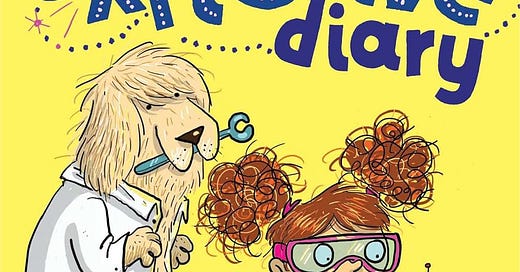It’s very revealing that the first series I invented when I started Voracious in January 2023 was about mistakes. In wondering about the value of this series for writers at different stages of their career, I tried to crystallise my full-house of writerly sins: I was impatient, I undervalued my work, I failed to trust my instincts, I tried to speed up a process that naturally takes time. Honestly, what a ratbag I’ve been. But here I am one year later with the final historical bungle.
I learn most effectively through hearing or telling stories, and I hope you’ve enjoyed reading mine.
It’s 2012, my fourth year in Australia.
The acute homesickness isn’t going away so I’ve resolved to dig in a bit more. I take a long-shot by applying for a full-time book-related job that I’m not qualified for. I buy new shoes five minutes before the interview, as if that’s going to make a difference. But they are magic shoes, I get the job. My first thought is: Crap, how am I going to cope?
My partner runs his own company across two hemispheres and is never not working, I have children in primary school and no relatives to help with drop-offs and pick-ups, and I have to work Saturdays in the new job. I devise a timetable to satisfy both the children and the employer, and though this leaves me without a weekend, I’m not even forty, I still have energy and elasticity and haven’t even begun to walk into rooms and forget what I came in for, so I reckon I can manage.
For the first fortnight I cry myself to sleep: the new systems and people, the sheer exhaustion of pretending I know what I’m doing, the wrench of spending so little time with my children. But it’s reassuring to see my partner being a more hands-on parent, the children seem unperturbed, and suddenly I’m through my probation period.
One year later, I haven’t worn the magic shoes since the interview, but . . .
. . . I think I may even be good at my job. I find some headspace for writing, redraft a manuscript to give it an Australian setting and sell it to a publisher through the slush-pile. A junior series I pitch to write in the UK looks likely to get the green light.
We’re renting a ratty but charming house in a suburb where it feels like everyone drives an enormous car, wears permanent 2XU and gets botox, whereas my job is full of unpretentious bibliophiles of all ages who ride bikes and only wear jeans — I feel almost at home, so although I’m run ragged I’m finally making my own way in this country.
The next part of the story is about how rejection in the publishing industry can feel to a writer like a slammed door — but sometimes the door has a soft-close hinge.
When I sell my first Australian manuscript, it’s after two publishers have read it. One says it needs work, off you go (with some very good notes), and the other says it needs work, let’s do that work together. So I sign, and that’s the start of an important relationship. But a year down the line the off you go publisher gets in touch again: they’ve thought of me for a new series.
(The magic shoes work even from the back of the wardrobe.)
I try to line up my ducks.
I can’t quit my job because we’re trying to buy an apartment. The kids at 7 and 9 are still surprisingly dependent on my attention — 7 has just blown up the microwave making porridge. I’m doing a terrible job of promoting my novel, which has just come out, and I’m writing another. The UK publisher of the junior series is keeping me hanging: they may want several more books, they may not*. As much as I want to be able to line up that final duck — the invitation to be part of a new series — I feel like I have to say no.
The series goes on to be successful, but this isn’t so much about books I wish I’d written, it’s about a tendency to struggle on alone.
When faced with a great opportunity, I seized up.
I made up an equation consisting of my individual capability and the hours in a day, and the answer didn’t make sense. So many of us do this. With writing, and I suspect especially parents who write, and then even more so parents who write children’s books, we wrestle with the feeling that what we’re passionate about doesn’t hold enough weight to qualify for support.
While the trend of the past few years has been about “the power of no”, there’s another aspect of dealing with overload that doesn’t involve saying no: it calls for saying “can you help me?”. It sounds simple, but for many it is a huge leap to do this. In hindsight, I could have asked my job if I could drop a day for a little while. I could have run it by a couple of mum-friends to see if they’d be interested in kid-pooling.
Who knows what I could have come up with if only I wasn’t always trying to solve my problem as if I’ve crash-landed alone in the Peruvian rainforest**.
Asking for help can be a sign of strength and respect. I’m still working on it.
Thank you for reading my 5 Mistakes series.
*they didn’t
**How teenager Juliane Koepcke survived a plane crash and solo 11-day trek out of the Amazon.




